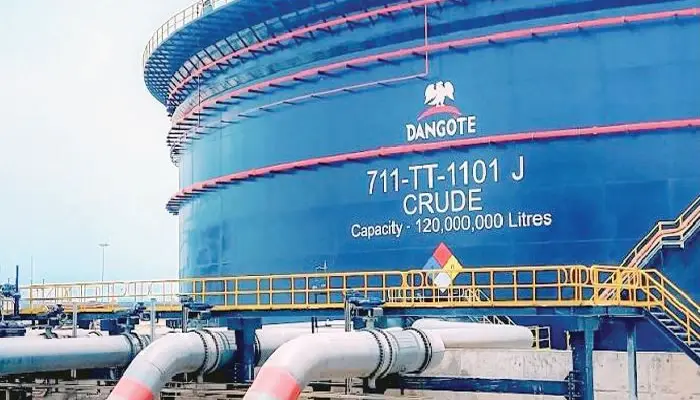Dangote’s Direct Fuel Supply Targets Economic Relief, Rural Access, and Job Creation
In what experts are calling a major boost for Nigeria’s struggling economy, the Dangote Refinery has announced plans to begin direct distribution of petrol and diesel to high-volume consumers nationwide, a move expected to reduce fuel costs, improve rural access, and stimulate job creation.
The company disclosed that beginning August 15, 2025, it will supply fuel directly to manufacturers, telecom operators, aviation companies, petrol stations, and other large users.
In a bold departure from tradition, petroleum marketers will be excluded from this supply chain—making room for more efficient, cost-saving distribution.
According to the company, the goal is to eliminate logistical bottlenecks, cut middleman costs, and pass the savings directly to businesses and end users.
“This strategy is part of our broader commitment to economic development, sustainability, and nationwide fuel availability,” the refinery said in a statement.

To power the initiative, 4,000 CNG-powered tankers and over 100 booster stations are being deployed across the country. Dangote’s logistics support will be offered free of charge, helping to revitalize dormant petrol stations and expand reach into underserved rural communities.
Economists say the move could, lower production and transportation costs for industries, reduce inflation by stabilizing fuel prices,Create thousands of logistics and retail jobs, Encourage fuel station operations in remote areas and boost investor confidence in Nigeria’s downstream sector
The refinery is also offering credit facilities for bulk buyers, allowing them to purchase fuel on a two-week repayment plan, further easing cash flow constraints in the private sector.
The company aligned the initiative with President Bola Tinubu’s Renewed Hope Agenda, noting the government’s support through the Naira-for-Crude policy as critical to fuel stability.
As Nigeria faces rising inflation and economic pressure, Dangote’s move is being viewed not just as a market disruption, but a strategic economic intervention.

